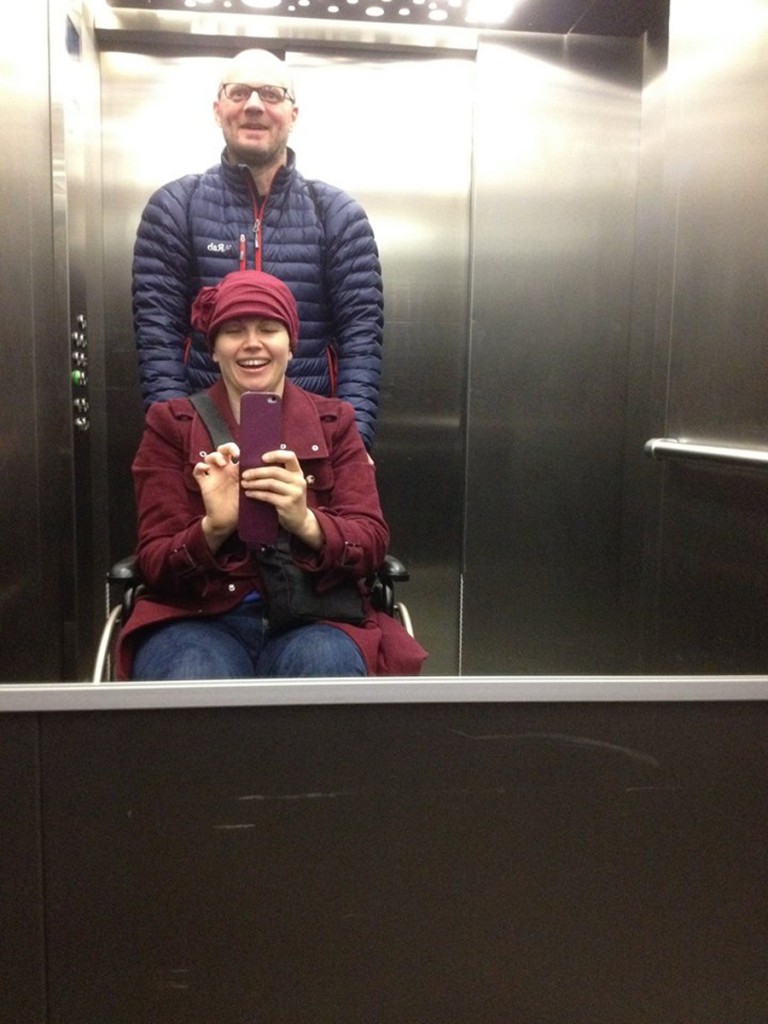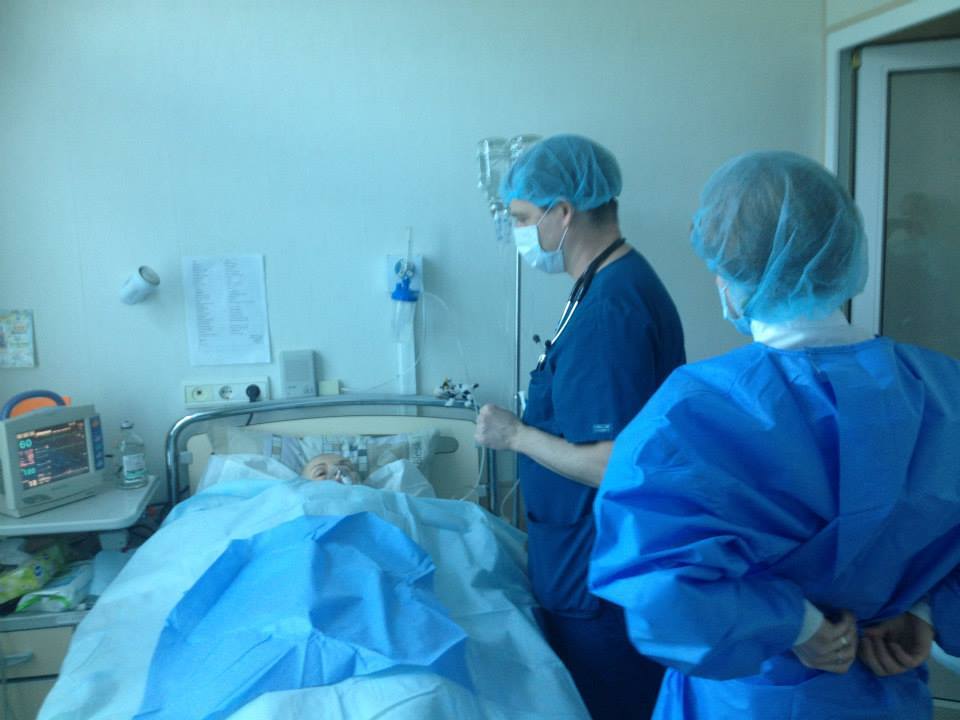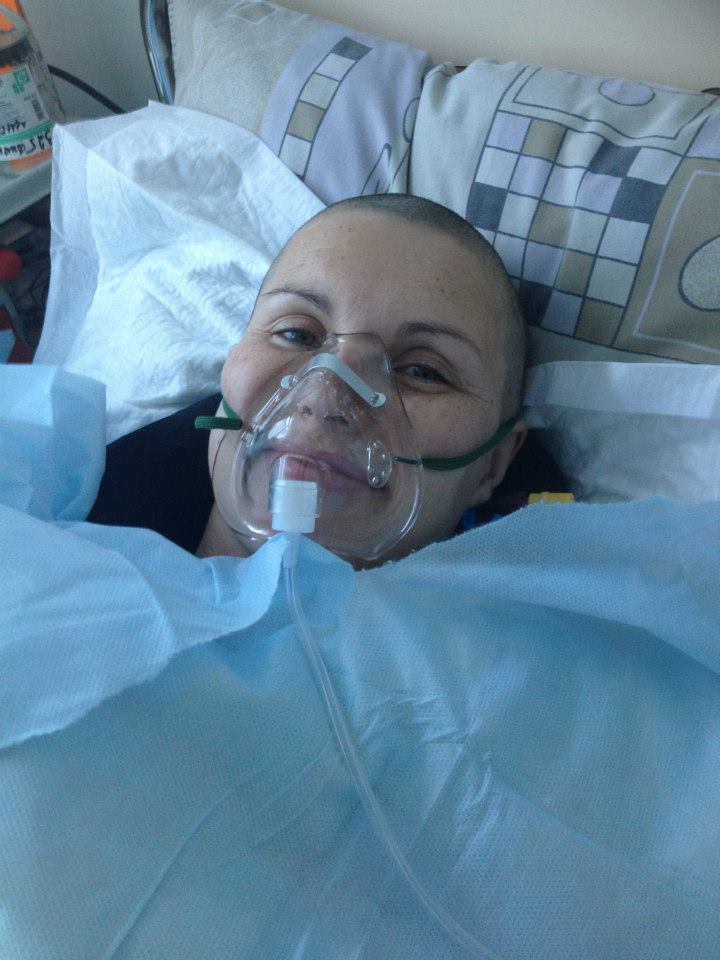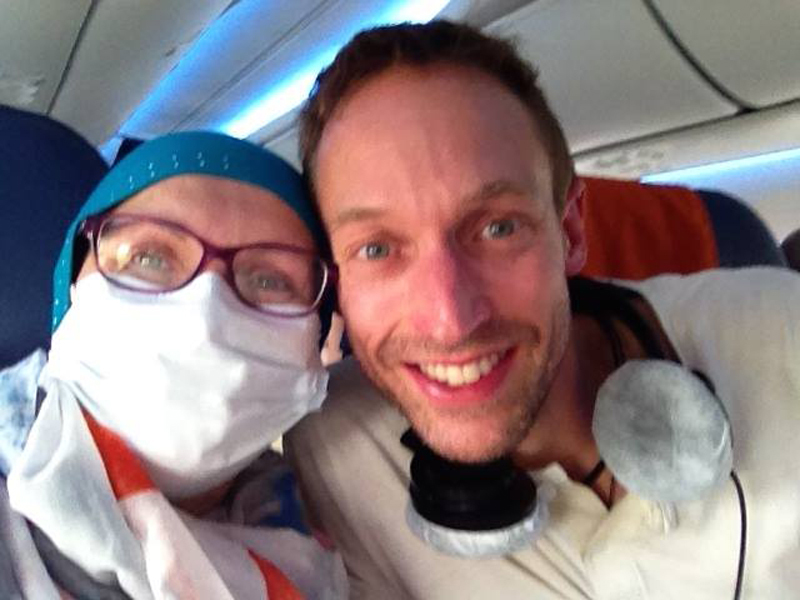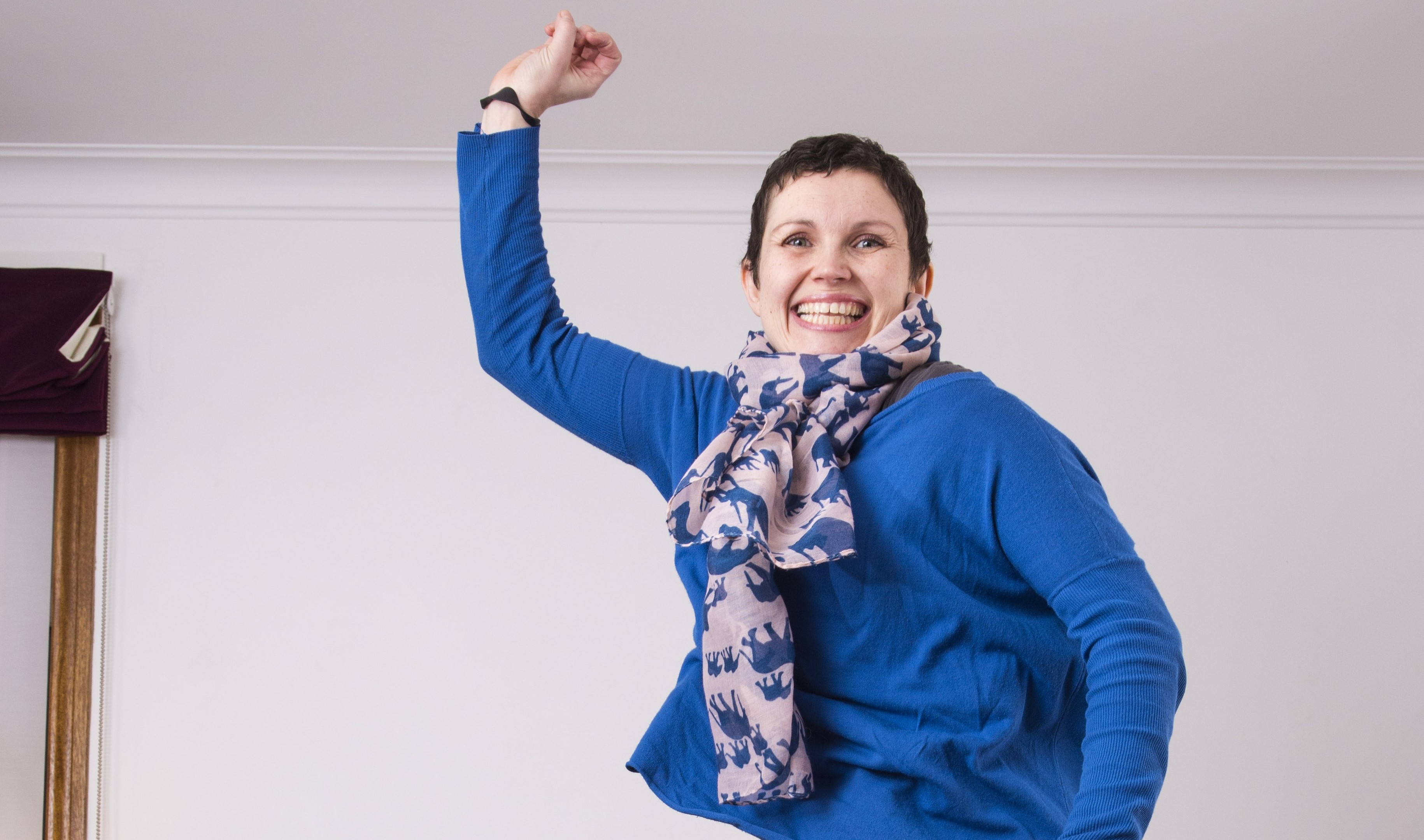
The mum, 39, is the first Scot to have successfully undergone the radical stem cell treatment that’s being hailed as “miraculous” by experts.
They are now hopeful that it could eradicate the degenerative neurological condition once and for all.
Lucy, from Inverness, was forced to raise £40,000 to go to Moscow for the treatment as she didn’t qualify for a trial in the UK.
But now she’s able to live a more pain-free life and is enjoying a recovery that recently peaked in a moment of bliss while she played with son Theo.
The pair were larking about in the five-year-old’s room when Lucy, as part of a game, found herself leaping into the air.
She was so excited she “just kept jumping”.
Now there is real hope that the treatment could be rolled out to help cure the UK’s 100,000 MS sufferers – with 10,000 of them in Scotland alone.
Last week, doctors at the Royal Hallamshire Hospital in Sheffield hailed the early results of a trial involving about 20 patients.
The new treatment uses chemotherapy to destroy the patient’s immune system, which is rebuilt using stem cells harvested earlier from the patient’s blood in a process called autologous haematopoietic stem cell transplant (HSCT).
Basil Sharrack, a neurologist at the hospital, said: “Some of the results we have seen have been miraculous.
“This is not a word I would use lightly.”
Speaking exclusively to The Sunday Post, Lucy said: “I feel more active now.
“I still walk with a walking stick but I’m swimming again and I’m cycling on my trike.
“You would think walking would be the first thing to come back but that’s difficult to do.
“Cycling and swimming have come back first.”
Lucy suffers from secondary progressive MS, a serious form of the condition, characterised by its sustained build-up of disability.
She found out about HSCT while visiting her dad in New Zealand.
He had seen a documentary on it and wondered if it might help his daughter.
On investigating, Lucy discovered she did not meet the criteria for the Sheffield study – one of the only trials of the treatment in the UK.
This was because it was only being offered to people with relapsing remitting MS – a less severe form of the condition.
Undeterred, she discovered she could get the treatment privately in Moscow and went about raising the £40,000 needed.
As she launched the campaign, she told her friends and loved ones: “I am committed to do whatever I can to overcome this disease.”
However, the acupuncturist, married to husband Dan, 44, was told by Russian experts that the waiting list was three years.
But, luckily, she was offered a rare, last-minute cancellation.
The treatment took place in May of last year.
She spent just over a month at Moscow’s Prigov Centre undergoing the procedures which began on her 39th birthday.
Her stem cells were carefully removed from her bone marrow before she endured a week of intensive chemotherapy.
Lucy said some patients suffer negative reactions, such as extreme nausea and bone pain, but that although her hair fell out she had mild side-effects.
“I didn’t have negative effects. The doctor said 60% of people can go through treatment with minor effects, while the other 40% get negative effects.
“Everyone responds differently.
“Fortunately I was well enough. Luckily, I didn’t get very sick.
“The effects I did get were extreme fatigue.”
Since undergoing treatment Lucy no longer suffers pain or cramping in her legs on waking up, can climb the stairs more easily, has more energy and can circle and flex her right foot.
Unlike before, she now finds that most days she has no or very little numbness and tingling in arms, hands, legs and feet.
She also doesn’t slur her words anymore and has found that a tremor she had developed in her left hand is gone.
And, of course, she’s now becoming an expert jumper.
Using physiotherapy, she’s focusing on putting more weight on her right leg and strengthening her muscles.
She even dreams one day to be able to say goodbye to her walking sticks.
However, Lucy hopes the biggest improvements are yet to come.
Doctors in Moscow told her she that her condition could improve the most between 24 and 36 months after the treatment.
Lucy started experiencing symptoms of MS when she was 15 but wasn’t diagnosed until she was 29.
She added: “The main aim of HSCT was to stop progression the of MS.
“The fact I am already seeing small changes is so positive and each week and month there are more.
“All the small changes will add up to bigger changes.
“For just now, I just need to keep it real and keep my focus.”
MS develops when the coating around nerve fibres is attacked by the immune system.
The trial which made headlines last week involves about 100 patients in the UK, the United States, Sweden and Brazil.
John Snowden, a consultant haematologist at the Royal Hallamshire, has urged caution, however.
He said it was clear the treatment had made a big impact on patients’ lives but said trial subjects would “have to be monitored for decades”.
He said: “Time will tell whether it is a cure or not.”
Back at home in Inverness, Lucy is realistic about the future.
“I don’t want to mislead people that everything is rosy and life is easy,” she adds.
“I still get difficult days. Some mornings it can take longer than an hour or so to get my body going.
“I keep reminding myself that I am recovering from a major, invasive treatment.
“Getting back to health just from the effects of chemotherapy alone takes time and rest.
“This, plus the years of damage MS caused my body and nerves, means recovery will not happen overnight.
“HSCT is not a miracle cure.
“My aim from treatment has always been to halt progression of the disease.
“Anything over and above I regard as an added bonus.
“When I compare how things are now to this time last year it must be said I’m thrilled.
“Not only have I not deteriorated in any way, I am able to do things I haven’t been able to do in a very long time – things I thought I wouldn’t be able to do again.
“HSCT was definitely the best treatment choice for me.”

Enjoy the convenience of having The Sunday Post delivered as a digital ePaper straight to your smartphone, tablet or computer.
Subscribe for only £5.49 a month and enjoy all the benefits of the printed paper as a digital replica.
Subscribe